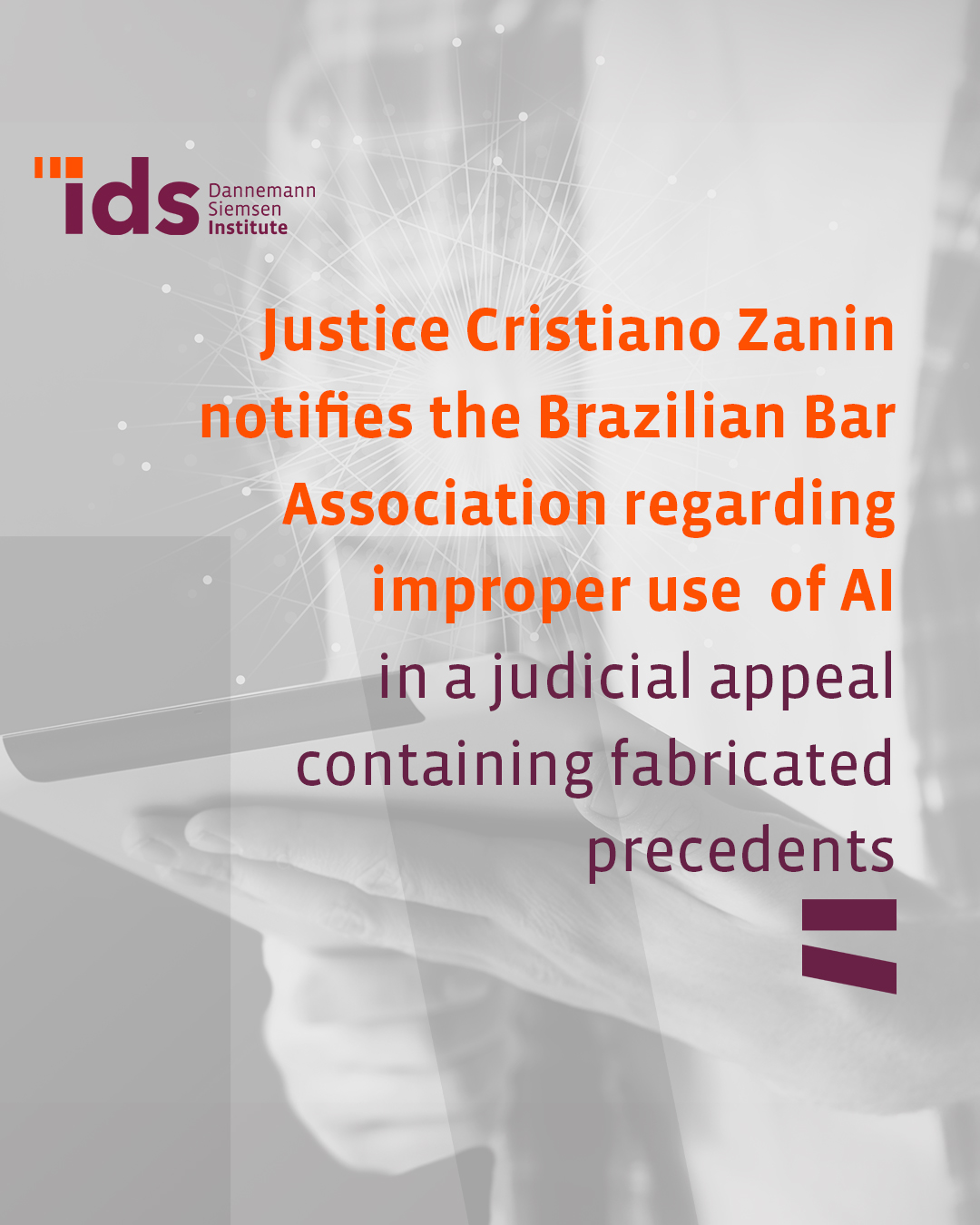27 de maio de 2025
Share
Justice Cristiano Zanin notifies the Brazilian Bar Association regarding improper use of AI in a judicial appeal containing fabricated precedents
On May 12, 2025, Justice Cristiano Zanin, of the Brazilian Federal Supreme Court (STF), notified the Federal Council of the Brazilian Bar Association (OAB) after identifying the improper use of artificial intelligence (AI) in the drafting of an judicial appeal. The inappropriate use of AI occurred in a Constitutional Complaint, with a request for an injunction, filed against a decision issued by the Brazilian Superior Labor Court (TST).
In the ruling issued by Justice Zanin regarding the judgment of the Constitutional Complaint, it is stated that, upon analyzing the complaint, the Justice verified that the decisions cited as having been rendered in the records of the Internal Appeal in the Special Appeal No. 1,218,084 and the Special Appeals Nos. 464,867/SP and 328,111/DF did not exist. He also found that the petition contained false statements regarding the ruling in Special Appeal No. 226,855/RS. Furthermore, it was verified that the content presented as corresponding to Binding Precedent No. 6 did not match the actual text of that precedent.
Justice Zanin noted in the ruling that all pages of the appeal bore a watermark reading “Created with MobiOffice,” an application that, according to research conducted by the Justice himself, offers a writing assistant with generative AI capabilities.
Based on these elements, Zanin concluded that the attorney had used a generative AI tool to draft the petition without conducting any subsequent human review. According to the Justice, the uncritical use of the technology resulted in the inclusion of non-existent case law and the improper use of a binding precedent, thereby compromising the integrity of the document. He stated: “This fact, combined with the citations of non-existent judgments and false statements about the content of a binding precedent and a ruling of this Supreme Court, allows the conclusion that the attorney who signed the initial petition possibly used an artificial intelligence tool in its preparation and, without any subsequent review, recklessly filed it with the Federal Supreme Court.”
Considering that the conduct could constitute a violation of the Brazilian Bar Statute (Law No. 8,906/1994), Zanin ordered that the OAB be informed so that appropriate measures could be taken. He also found that the conduct amounted to bad-faith litigation, emphasizing that the plaintiff “acts recklessly, fabricating the existence of binding precedents, in a lawsuit filed before the Federal Supreme Court, pursuant to Article 80, V, of the Brazilian Code of Civil Procedure.”
It is worth noting that the Federal Council of OAB published Recommendation No. 001/2024 on November 14, 2024, establishing guidelines to regulate the use of generative artificial intelligence in legal practice. Among its provisions, it emphasizes that “the use of generative AI in legal practice must be carried out in accordance with applicable legislation, including the Statute of the Legal Profession and the OAB, the OAB Code of Ethics and Discipline, the General Data Protection Law (Law No. 13,709, of August 14, 2018), the Code of Civil Procedure, and with due respect for intellectual property.”
The document also states that “when using a generative AI system, the attorney must ensure the ethical use of the technology, ensuring that professional judgment is not exercised through generative AI systems without human supervision, and that no activities exclusive to the legal profession are delegated to such systems.” Furthermore, it recommends that attorneys act transparently, informing clients “about the intended use of generative AI, while assessing its limitations in each specific case.”
The ruling can be accessed via the link: Rcl 78890
OAB Recommendation 001/2024 can be accessed via the link: https://diario.oab.org.br/pages/materia/842347
Note: For quick release, this English version is provided by automated translation without human review.
